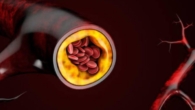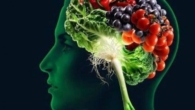
5 Symptoms of Vitamin Deficiency That Can Be Mistaken for Dementia
0
People over 60 are more at risk of this deficiency and are also more likely to suffer from dementia than younger people.
Symptoms are not always clear-cut when it comes to what might be causing them.
Some symptoms, such as headaches, for example, are associated with a variety of health problems. That's why it's important to see a doctor about any unexplained symptoms to determine the root cause.
Vitamin B12 deficiency is a health problem that can easily be confused with other problems due to the wide range of symptoms it causes.
The vitamin is vital to the body, so a deficiency can have serious consequences.
“Vitamin B12 is an essential vitamin, meaning it cannot be produced by the human body and must be obtained from food. It is found in red meat, poultry, fish, dairy products and eggs. Some breakfast cereals are fortified with B12. After consumption, B12 is absorbed in the intestines with the help of a protein called intrinsic factor. B12 is vital for the creation of DNA – therefore, it is necessary for a wide range of processes and functions in the body, including the formation of red blood cells and nerve function in the peripheral nerves, throughout the brain and central nervous system,” says the general practitioner.
She warned that around six percent of adults are B12 deficient, with this statistic rising to 20 percent among people over 60.
B12 is “stored” in the liver, and it can take up to three years before stores are depleted and symptoms gradually appear.
Because symptoms appear very slowly, B12 deficiency can go unnoticed for a long time. Since vitamin B12 is essential for brain function, some of the most serious symptoms of deficiency can be mistaken for dementia.
These include:
- Thinking and decision-making problems
- Behavioral changes
- Decreased ability to think and solve problems
- Depression
- Visual disturbances.
In some cases, vitamin B12 deficiency has actually been linked to Alzheimer's disease, the most common type of dementia.
“B12 deficiency has serious consequences for human health. B12 deficiency is also linked to depression and psychosis, as well as multiple sclerosis, Parkinson's disease and Alzheimer's disease.” She listed other symptoms of deficiency: Fatigue Feeling weak Headaches Heart palpitations Loss of appetite Weight loss Sore red tongue Mouth ulcers Pins and needles What to do if you think you have a B12 deficiency If you are experiencing symptoms of a B12 deficiency, you can try increasing your intake through your diet. This includes: eating more meat, fish, cheese, eggs and foods fortified with vitamin B12”.
If your symptoms are more severe and changing your diet is not possible or does not help, you should see your doctor.
They can do tests to see if you have a deficiency. If they think regular B12 supplements will be enough, they may suggest injections.









Leave a Reply